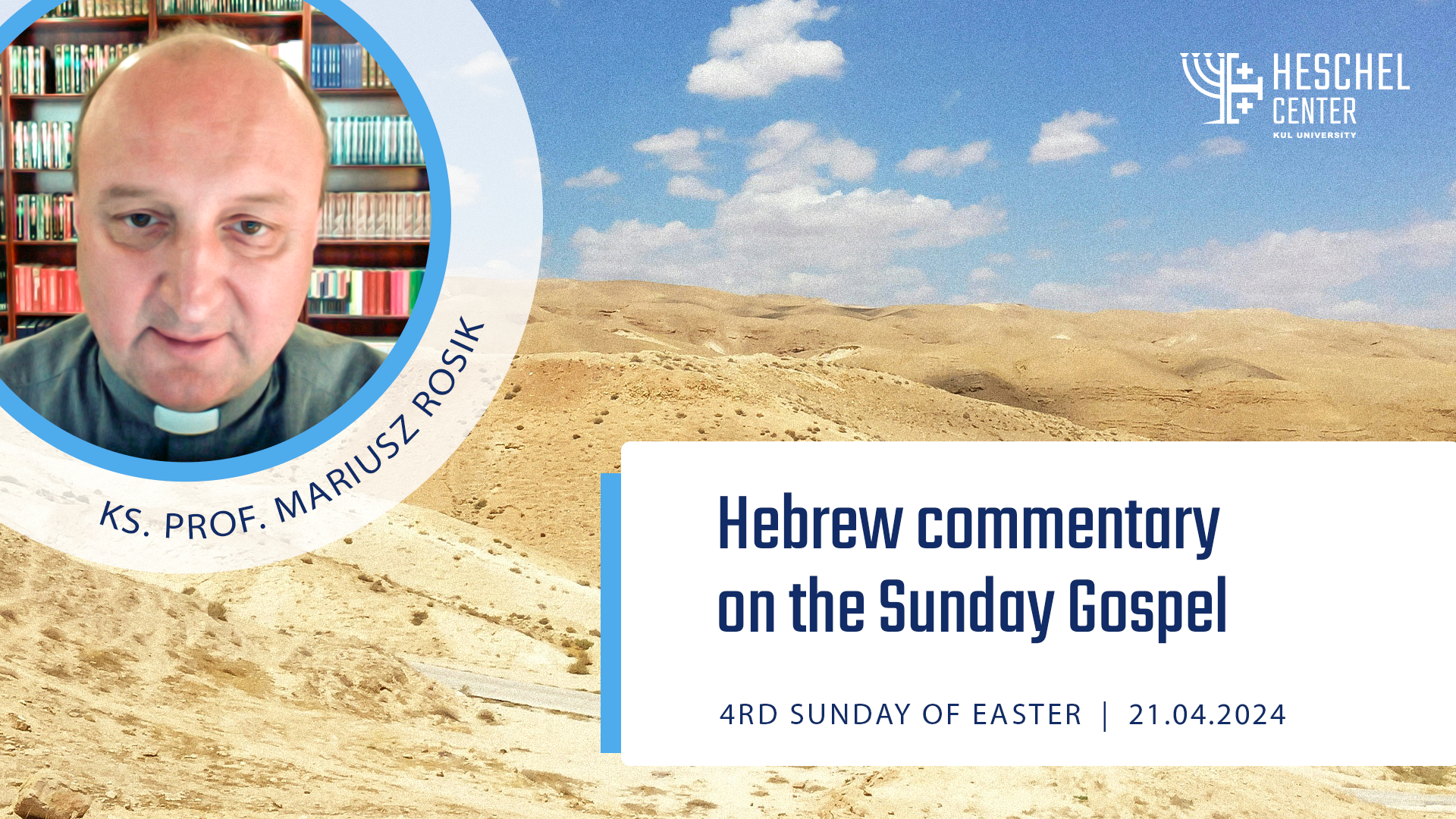The Fourth Sunday of Easter ‒ Jesus, the Good Shepherd

Bedouins are nomadic Arab tribes still living in ancient Palestine's desert and mountainous areas. They are mainly engaged in sheep herding. Surprisingly, even a group of dozens of Bedouins can speak only a language they understand and cherish customs peculiar to them. Living far away from cities and larger settlements, they sit around a campfire in front of their tents to talk for a long time, sing, and keep a night watch on their flocks. Sometimes, this proves necessary, as there are cases of sheep being stolen or attacked by wolves. From time to time, the Israeli press reports on mutual theft of flocks among various Bedouin tribes or attacks by wild animals. More than one shepherd lost his life in defense of his flock.
In the context of first-century Palestine, shepherds were viewed by the nation's spiritual leaders as am-haarec - people who were deemed ignorant of the Law. They were denied access to pre-synagogue education, their testimonies in courts were disregarded, and they were often ostracized due to their lack of knowledge of religious laws. Understanding this societal context can help us empathize with the shepherds and appreciate Jesus' identification with them.
Usually, when we think of Jesus as a good shepherd, a very idyllic picture is drawn before us - Jesus gently holding a sheep on his shoulders. Meanwhile, it is about something else. First, about the fact that Jesus identifies himself with the most despised social group, compared to the unclean Gentiles. Second, about Jesus risking his life to defend the sheep. "The good shepherd gives his life for the sheep," he says.
Researchers of animal habits have described quite well the behavior of a pack of wolves lurking for prey. If it numbers about ten wolves, usually three of them are trackers. They are the ones who discover the prey's whereabouts. However, they do not attack it but retreat, giving way to the rewarding wolves. These surround the prey in such a way that it hits the exact location of the other wolves. Then, they all proceed to attack. The right of priority is, of course, the alpha pair or the two leader wolves.
It is unknown whether these customs were known to the Palestinian shepherds of Jesus' time. Even if they were, the mercenaries certainly paid no attention to them. "But the mercenary, and he who is not a shepherd, whose sheep he does not own, seeing the wolf coming, abandons the sheep and flees, and the wolf seizes them and scatters them; and the mercenary flees because he is a mercenary and does not care about the sheep." (J 10,12-13).
Jesus - the good shepherd, not only did not run away like a mercenary but gave himself to be killed for each of us. In this way, he saved our lives.
About the author:
Rev. Prof. Dr. Mariusz Rosik - biblical scholar, professor of theological sciences, director of the Institute of Biblical Studies at the Pontifical Faculty of Theology in Wroclaw. He specializes in the theology of the New Testament, exegesis of the Synoptic Gospels and ancient Jewish history. Author of numerous scientific, popular science and pastoral publications. www.mariuszrosik.pl www.lumenvitae.pl












